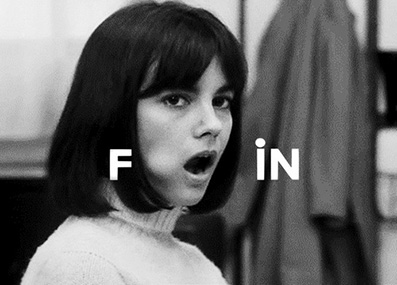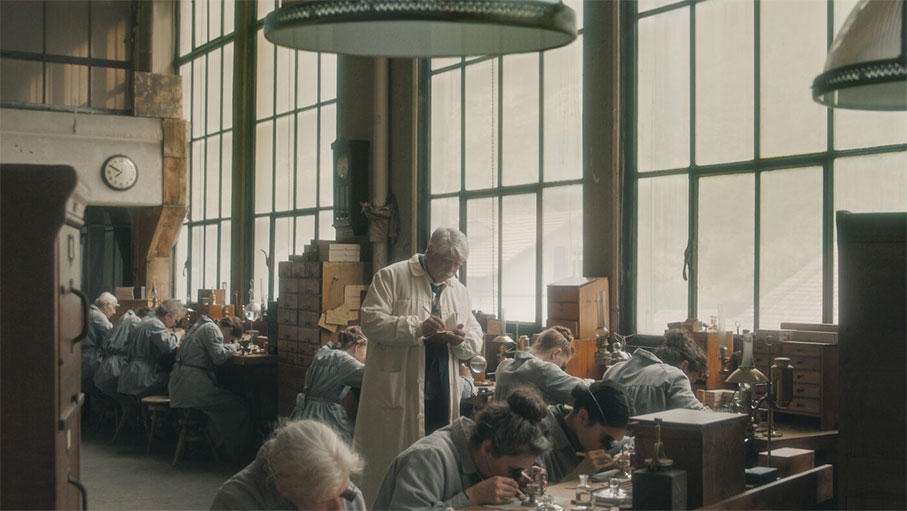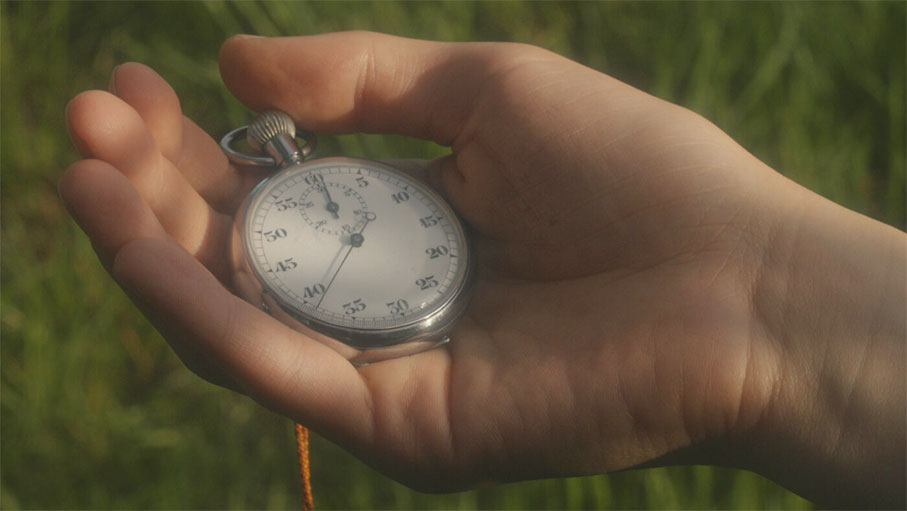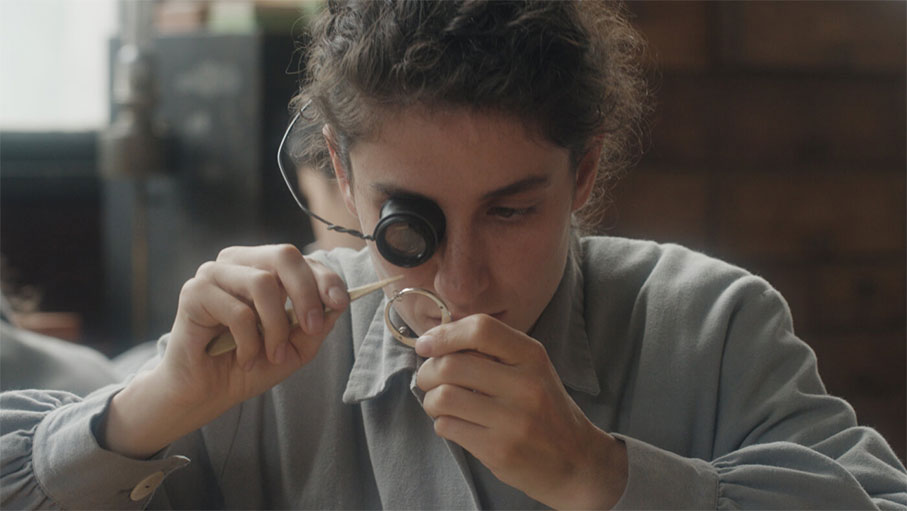|
Before a word can be said about this year’s London Film Festival, we must mark the demise of a cinematic colossus and dip our flag in silent salute to Jean-Luc Godard – who bowed out last month, leaving cinema bereft of her finest son. Not, perhaps, since Antonioni and Bergman died on the same dayhas cinema, as we knew it, suffered such a blow. I haven’t the heart, stomach or words to muster fitting tribute. I haven’t, anyway, come across an encomium as taut and telling as the one Truffaut gifted Godard just before the rupture in their friendship: ‘Jean-Luc Godard is not the only director for whom filming is like breathing, but he's the one who breathes best. He is rapid like Rossellini, sly like Sacha Guitry, musical like Orson Wells, simple like Pagnol, wounded like Nicholas Ray, effective like Hitchcock, profound like Bergman, and insolent like nobody else. There is cinema before Godard and cinema after Godard’.
So, before we move on to ‘cinema after Godard’, we might usefully ask if we can even talk of such a thing. A few days before I heard Godard had elected to end his life in Rolle, Switzerland, I was in Marseille. On the last day of my fortnight in France, I strolled down from Le Panier to the MUCEM and bought a copy of Pierre Pinchon’s Contrebandes: Godard 1960-1968. This hefty, handsome hardback was produced for the museum’s exhibition on the photo-novels with which Godard promoted his early films. Flicking through it in the giftshop, my eye immediately fell upon the first frames of À bout de souffle – in which Belmondo as Michel Poiccard steals a Yank’s car, a stone’s throw from where I stood.
It is debatable whether the French New Wave actually existed or was manufactured. Chabrol said the Cahiers critics were ‘promoted like a brand of soap’. A secondary myth persists that the ‘movement’ was born not in Chabrol’s native Sardent in 1958, with Le beau serge, but, rather, in Godard’s Marseille, on the quayside of Vieux Port, in 1960. There is cinema before À bout de souffle, the argument goes, and cinema after it. That irresistibly neat and persuasive idea speaks to the closing credit of Weekend (‘Fin du Cinema’) and the equally compelling notion that cinema as we’ve known it died with Godard. Or, as Jonathan Rosenbaum suggested, that the video-suite in Rolle, Switzerland where Godard hand-crafted his final films was the graveyard of cinema.

Whatever one’s view of those claims, nobody, not even Emmanuel Macron, disputes Godard decisive impact and critical importance. It is fitting that this month’s Sight & Sound is devoted to the late, lamented Franco-Swiss maestro [nice work, Kent Jones], but regrettable, almost unforgivable, that this year’s London Film Festival will pass without even passing mention of his passing. Late amendments and additions to festival programmes are, after all, commonplace.
In an obituary run by The Nation beneath the header ‘Godard Was Cinema’, J. Hoberman conjectured that Godard was, ‘perhaps. the single most important individual in the history of cinema’. The most influential, certainly. Godard was totemic for soixante huitards, but his far-reaching influence fell more widely across a generation or two of cineastes and cinephiles. It can be felt, I think, in Swiss director Cyril Schäublin’s superbly subtle second feature, Unrest. Schäublin may not spring to many minds as an acolyte of, or successor to Godard, but Unrest treats politics seriously, deploys a formal dexterity born of love of the medium, and may ruffle a few feathers. Winner of a Best Director golden bear at Berlin, this urgent, if unhurried period piece manages to be painterly and poetic while challenging the convulsive tics and ominous tocks of modern life with Godardian acumen and fearlessness.
Another sad aside, though, is now necessary. Schäublin’s astonishingly mature first feature, Those Who Are Fine, won the Best Film award at the 2018 Edinburgh International Film Festival – which tragically came to a crashing halt last week, after 75 magnificent years. The simultaneous loss of the festival’s beating heart, the much-loved Filmhouse, delivered yet another deeply upsetting and depressing blow to cultural cinema. Well might Jacques Rancière say, ‘Godard may have thought of himself as the last of the Mohicans mourning the death of cinema and predicting the reign of darkness’. It is hard, right now, not to feel that an era has ended. Mercifully, filmmakers like Cyril Schäublin, and newly-opened cinemas like the delightful Garden in London, offer hope that the artform and industry can rally and live to fight another day.
Schäublin’s debut was a darkly comic satire that tackled the alienation, anomie and atomisation of surveillance capitalism head on - with a formal dexterity, subtle humour, and refreshing minimalist elegance that is equally evident in Unrest. Patrick McGoogan’s No 6 in the TV series The Prisoner defiantly cries ‘I am not a number. I am a free man’: Schäublin replies, simply, ‘Really?!’ He wryly suggests we’ve all been reduced to numbers by an automated, highly-synchronized social system that crushes the human soul and renders notions of liberty illusionary.

In Those Who Are Fine, Schäublin’s characters inhabit a desolate dystopian landscape dominated by the icy digitisation of a second machine age. In Unrest, he looks back from the all-or-nothing ecological crisis of our moment and wonders where and when our enslavement to algorithms, codes, numbers, passcodes and the tyranny of ‘capitalist time’ began. He locates the origins of this malaise in the first machine age; more specifically, in the valley of Saint-Imier, in the Jura region of Switzerland, in the 1870s.
Switzerland was, and remains a world-renowned centre of watchmaking but, in the decades leading to the First World War, it was also a refuge for political exiles and a pulsing hotbed of radical cultural and political agitation. Joyce wrote much of Ulysses there, Lenin lay low there before returning to Russia demanding ‘Peace, Bread and Land’, and Kropotkin began developing his theories of mutual aid in Swiss anarchist circles (ably abetted by Italian comrades Carlo Cafiero and Errico Malatesta). Kropotkin used his credentials as a cartographer and geographer as cover, criss-crossing Europe in the service of revolution. Unrest focuses on his formative stay with the artisan-watchmakers of the Jura Federation – whose electoral abstentionism, internationalism, and commitment to anti-authoritarian, non-hierarchical forms of organisation would shape his anarchism and determine his path in life. Schäublin even intimates that Kropotkin (Alexei Evstratov) found love among the Jura anarchists, with a watchmaker, Josephine (Clara Gostynski), who is laid off after an edict forbids membership of the Federation.
The film begins, appropriately, with a neat primer on anarchism, delivered by way of a discussion among four haute bourgeois women, cousins and friends of Kropotkin. Their conversation humanises Kropotkin and foregrounds the coalescing contests between nationalism and socialism, capital and labour, freedom and control - which Schäublin subsequently picks out with metaphorical exactitude through the lives of the autodidact watchmakers. The quartet of women are gathered for a photoshoot and their chatter also highlights the craze for collecting daguerreotypes that was then sweeping Europe. This is one of many hints the film offers of the seismic changes afoot – particularly those attendant upon the contemporaneous rise of commodity fetishism and technology fetishism, the arrival of the photograph and the telegraph, and the introduction of new forms of despotic time-management we now know as capitalist time.
The ‘unrest’ of the film’s title refers both to the delicate balancing mechanism at the beating heart of the watches the workers make and their resistance to the dehumanizing restraints of the proto-Taylorism imposed by the paternalist factory owner, Roulet (Valentin Merz), with the support of the equally affable police. Each piece of each watch is assembled by a different worker, each intricate movement is timed on a stopwatch. Meticulously composed close-ups sit us on the shoulders of the watchmakers as they work. The film is enamoured of those delicate processes of refrigerated cruelty. It thus foreshadows, better say, concertinas the early labour movement’s struggles for control of time, initially over the length of the working day and week.

In his landmark essay Time, Work-Discipline, and Industrial Capitalism. E.P. Thompson charted the shift from the natural, cyclical rhythms of agrarian and fishing communities to the emergence of abstract, sidereal ‘clock time’ from the 17th century onwards. Rudimentary public clocks, he notes, were widespread from the 14th century on, but household clocks became a fixed feature of life only after their accuracy was increased by Christiaan Huygens’ invention of the pendulum in 1656. Swiss watches would soon follow. Of one text he quotes Thompson says, ‘We are entering here, already in 1700, the familiar landscape of disciplined industrial capitalism, with the time-sheet, the time-keeper, the informers and the fines’. By the 1870s the consolidation of control over time and labour we see in Unrest was entering a critical phase.
The class struggle over breakneck acceleration and the creation of ‘the new universe of disciplined time’ in factory and school is laid bare in the film. The First International, in which Kropotkin played his part, demanded the eight-hour day at its 1865 conference in Switzerland. The Chicago Haymarket riots of 1886 commemorated on May Day were precipitated by the revolutionary demand ‘An Eight-hour day with no cut in pay!’. By the time of the General Strike of 1926 that struggle had been largely won and the demand was ‘Not a penny off the pay, not a second on the day!’. As Walter Benjamin noted, ‘Marx says that revolutions are the locomotive of world history. But perhaps it is quite otherwise. Maybe revolutions are an attempt by the passengers on this train — namely, the human race — to activate the emergency brake’.
In the period under consideration in Unrest, the townsfolk and watchmakers of Saint-Imier were forced, we are told, to contend with four competing forms of time: church, factory, municipal, and train time. Humanity and time itself stood at a crossroads: the imminent shift to standard time is about to disfigure industrial relations, indeed all human relations, just as the storm clouds of world war gather on the distant horizon. The film is also set at a time when all seemed possible, freethinking flourished, and political debate was conducted with civility. And while the consolidation of capitalism’s control of time was to do lasting damage to liberty, the possibilities opened up by the telegraph, meanwhile, enabled the Federation to communicate at pace with like-minded workers across the world in defence of their interests.
The telegraph ensures that their anarchist newspapers are read even by the bosses and that they could rapidly deliver solidarity contributions to strike funds the world over (for example, to those of Baltimore railway workers). Their internationalism was enhanced and facilitated by the new technology, just as ours now are. As if to underscore that idea, the film’s languid pace and understated dialogue lend it a tranquil modern vibe. What kind of world might have emerged, Schäublin seems to ask, if anarchism hadn’t been besmirched by the naïve strategy of ‘propaganda of the deed’ (which Kropotkin disavowed), and if it hadn’t been so easily and successfully demonised thereafter, therefore?

Unrest is rich in ideas and Schäublin sidesteps shallow didacticism and performs a delicate balancing act of his own. He deftly describes his thematic arcs while simultaneously building a plausible miniaturist picture of the period from his painstaking research, not least into his own family’s watchmaking past. He is at pains to point out, though, that we can only ever re-present the past as we imagine it, and much of his heavy lifting is done by tightly packed metaphor. Cinematographer Silvan Hillman’s static, deep focus, wide angle camerawork situates the watchmakers on the margins of the frame, emphasizing the watchmakers’ distance from the Centre. Class antagonisms are emphasized by the contrast between a heartrendingly beautiful workers’ song with the bosses’ more prosaic patriotic one, and by theatrical re-enactments of the Paris Commune and the Battle of Morat respectively. Even Kropotkin’s tacit romance with Josephine might stand for the goal of securing ‘for the workers by hand or by brain the full fruits of their industry and the most equitable distribution thereof that may be possible upon the basis of the common ownership of the means of production, distribution and exchange’.
Much of the fascination of Schäublin’s riveting film flows from the parlour game of sifting historical fact and metaphor, but the film rings true on both levels. For the anarchist artisans of Saint-Imier, the Paris Commune was a recent event and a utopian promise. Many members of the Jura Foundation were former Communards who’d escaped to Switzerland from Paris, fortunate to escape execution in Père Lachaise cemetery like so many of their comrades. It is a testimony to the film’s lustre and perfect pacing that none of the many historic developments Schäublin so nimbly weaves into the film’s fabric do damage to its shimmering beauty.
Unrest recalls the compositional finesse of Jessica Hausner’s Lourdes and Bill Douglas’s Comrades: A Lanternist's Account of the Tolpuddle Martyrs. Above all, though, it recalls the painterly splendour of Peter Watkins’ docudrama Edward Munch and the radical aesthetics of his magnus opus, La Commune (Paris, 1871). Like Bill Douglas, Schäublin urged his cast not to rush a single line; like Peter Watkins, he worked with non-professional actors to intensify a sense of historical authenticity. As Watkins did in La Commune, he generates a conversation between the past and the present - which the Jean-Luc Godard of L’Histoire(s) du cinema might have proposed as a way of describing cinema, tout court. While we mourn Godard and stare sorrowfully into the void he leaves behind, it is heartening to hope that Cyril Schäublin’s fierce intelligence, quiet radicalism and cinematic brio will be at work for many years to come.
|